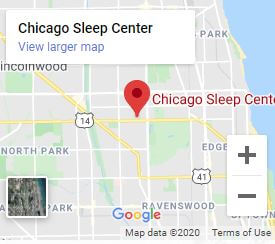Sleep apnea is more than just snoring and restless sleep. It has been tied to increased risk of heart disease, high blood pressure, stroke, weight gain, impotence, and more. Despite these health complications, many people are reluctant to take steps to treat it. First, denial that they have the disease interferes. And next, they are deterred by idea of CPAP therapy. However, a new study shows that CPAP therapy is linked to a longer life.
Recently, researchers from the Paris Cardiovascular Research Center used information from the Sleep Heart Health Study, which has been an ongoing study since the late 1990s. They used data from 392 obese participants with severe obstructive sleep apnea. Patients who opted to use CPAP during 11 years of followup were 2/3 less likely to die compared to people who did not use CPAP.
“Although all of us in sleep medicine recognize that CPAP therapy helps reduce cardiovascular disease and therefore should extend life, it has been hard to prove until this study,” said Dr. Friedman, medical director of Chicago ENT. “This study has important data to help convince our patients of the benefits of CPAP.”
The report on the study notes that prior to this study, clinical trials were too short for the survival benefit of CPAP to emerge, as the benefit emerges after 6-7 years.
However, Dr. Friedman knows and understands that, while some patients may be more convinced to use CPAP, this information still may not help everyone. “It’s important knowledge, but we know that since the benefit isn’t immediate, it may not change the mind of every patient. Basically, smoking is going to shorten your life. And drinking too much alcohol is going to shorten your life. Being obese is going to take off 10 years from your life. Unfortunately, that does not often convince the average patient that they should change their lifestyle.”
“Although the information adds continued evidence of the importance, we also understand that there are many patients who cannot sleep with CPAP, and therefore probably will not use CPAP, even with this added information,” said Dr. Friedman.
Success with the continued use of CPAP often depends on the patient’s ability to feel immediate benefits. “The fact is that CPAP just is not for everybody,” said Dr. Friedman. “There are many patients who can adjust to CPAP, and CPAP becomes an important way of life because it makes them feel better. If they feel better in the morning, they will continue CPAP and not want to be without it. If they just cannot sleep or do not feel the benefit, knowing that it may extend their life is often not enough of an incentive to use an uncomfortable or intolerable treatment.”
The information revealed in the study is still important, though. It helps to show the danger of living with sleep apnea and not seeking treatment. And while CPAP is often the first treatment recommended, the past several years have brought several alternative options if a patient is not successful using CPAP. “Just as CPAP can extend life, so can other surgical and non-surgical interventions for sleep apnea. So it’s not CPAP or bust—it’s proper management of the condition,” said Dr. Friedman.
Do you think you or a loved one could have sleep apnea?
Set up an appointment to visit Chicago ENT today.
Photo by Matheus Vinicius on Unsplash



















